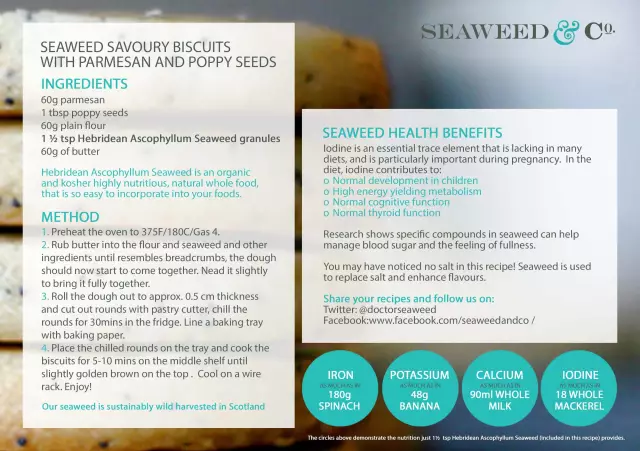- Author Rachel Wainwright wainwright@abchealthonline.com.
- Public 2023-12-15 07:39.
- Last modified 2025-11-02 20:14.
15 plants to include seedlings in your diet
Sprouted seeds and grains of cereals are considered one of the healthiest types of food. They are easily absorbed, combine well with other products and contain the maximum amount of biologically active substances necessary for the normal functioning of all organs and systems of the human body. In addition, sprouts have another extremely important quality: they are usually eaten raw and practically not stored, which allows them to be used with maximum benefits.
Let's talk about those plants whose seed sprouts are best suited for inclusion in the daily menu.
Wheat
Wheat sprouts have a sweetish taste and a fairly firm consistency. They are rich in ascorbic and folic acid, B vitamins, vitamin E, minerals (especially phosphorus, potassium, magnesium and calcium in seedlings).
The use of wheat seedlings is indicated for disorders of the digestive organs (chronic gastritis and colitis), as well as for ulcerative lesions of the stomach and duodenum (except for periods of exacerbation). Sprouts have a positive effect on the state of the nervous system, help to survive the effects of stress, normalize heart function, and improve the condition of nails, hair and skin. They are recommended to be included in the diet of people suffering from obesity and diabetes mellitus or prone to allergic reactions.

Source: depositphotos.com
Rye
Rye sprouts are similar in composition and effect on the human body to wheat sprouts, but, unlike the latter, they contain less phosphorus and magnesium, but more trace elements: selenium, fluorine, sulfur, silicon, vanadium, molybdenum.
Sprouted rye is an excellent health product. It has a mild laxative effect, activates intestinal peristalsis and improves the composition of the intestinal microflora,

Source: depositphotos.com
Buckwheat
Buckwheat sold by grocery stores is not suitable for germination, since it is roasted. Green buckwheat is used to obtain seedlings.
The product has a pleasant sweetish taste and contains a rich set of minerals, vitamins and trace elements. Sprouted buckwheat grains are considered one of the best sources of bioflavonoids: they contain a large amount of rutin, which has a beneficial effect on the condition of the heart muscle and strengthens the walls of blood vessels.
Buckwheat sprouts are recommended to be included in the diet of people suffering from hypertension, ischemic heart disease, atherosclerosis, varicose veins, hemorrhoids, bleeding gums. They are very useful for patients who have recently undergone infectious diseases that are dangerous to the cardiovascular system (typhus, scarlet fever, measles, sore throat). Regular use helps to reduce intraocular pressure. There is evidence that buckwheat sprouts have a beneficial effect on health in obesity, diabetes and radiation sickness.

Source: depositphotos.com
Lentils
Lentil sprouts are sweetish, juicy, slightly spicy. They are rich in protein, fiber, vitamins, contain a lot of potassium and a record amount of ascorbic acid - 64.41 mg per 100 g. Sprouted lentils are considered a product that improves blood composition and activates the blood-forming organs. It is very important to include it in the diet in the autumn-winter period for the prevention of colds and flu.

Source: depositphotos.com
Pumpkin
It is a valuable product, especially useful for improving vision and revitalizing the brain, due to its high content of phosphorus and zinc. Pumpkin seed sprouts are recommended for schoolchildren to strengthen memory, improve the functioning of the nervous system and reduce the effects of emotional and physical overload.
Regular consumption of pumpkin seedlings has a beneficial effect on the condition of the male reproductive system. It is believed that they improve potency, help prevent the development of prostatitis, optimize the functioning of the gonads, and maintain the tone of the bladder.

Source: depositphotos.com
Sunflower
A source of vegetable protein, high quality fatty acids, vitamins (especially vitamin E) and lecithin. Sunflower sprouts are useful for acid-base balance disorders, problems with the heart and blood vessels, damage to the mucous membrane of the gastrointestinal tract, high blood viscosity. They are recommended for use by patients to improve the condition of hair and skin; in women, they reduce menopause symptoms.

Source: depositphotos.com
Sesame
Sesame sprouts contain an extremely high amount of calcium (up to 1474 mg per 100 g), which makes them indispensable in the diet of people suffering from disorders of the musculoskeletal system. There is evidence that their regular use not only helps to strengthen bones, hair, teeth and nails, but even helps to restore the destroyed tooth enamel.
The inclusion of sesame seedlings in the diet is recommended for patients who have recently had fractures, patients with arthrosis, osteochondrosis, arthritis. It is important for women to eat this product to prevent osteoporosis. It is necessary for pregnant women, lactating women, as well as children during the period of tooth change and active bone growth.

Source: depositphotos.com
Linen
In terms of the content of vitamins, trace elements and calcium, flax seedlings are similar to sesame seeds. In addition, they contain substances that provide a slimy consistency, thanks to which they have unique properties. Flax seedlings help to cleanse the digestive tract of toxins, improve the condition of the mucous membranes, and reduce the intensity of hemorrhoid symptoms.
Flax sprouts are recommended for use in case of weakening of the tissues of bones, teeth and hair, violation of the tone of the walls of blood vessels, weakening of immunity, problems with performance and memory.

Source: depositphotos.com
Soy
The taste of soybean sprouts is similar to pickled asparagus - juicy, slightly sour, with a hint of pungency. They contain essential amino acids, proteins, vitamins and minerals.
The inclusion of soybean sprouts in the daily diet ensures the removal of excess fluid from the body, a decrease in the volume of subcutaneous fat deposits, and an activation of protein metabolism. The choline present in their composition helps to restore nervous tissue, which has a beneficial effect on memory and the ability to concentrate. Lecithin improves the condition of patients suffering from heart disease, malfunctioning of the pancreas and liver. Pectins help curb the growth of malignant neoplasms.

Source: depositphotos.com
Beans
For germination, use golden and angular beans (red varieties are considered unsuitable due to the appearance of a small amount of toxic substances in the seedlings). The product is rich in iron, calcium, amino acids and ascorbic acid. Its use helps to increase the level of hemoglobin in the blood and normalize metabolism. Bean sprouts are useful for general loss of energy, as well as a tendency to develop diabetes and atherosclerosis.

Source: depositphotos.com
Oats
Only bare-grain oat varieties are germinated, which are devoid of a hard outer shell. Oat sprouts have a sweetish taste with a nutty flavor. They have an immunostimulating, diaphoretic and diuretic effect, help fight dysbiosis. Oat sprouts are included in the diet for diseases of the kidneys, thyroid gland, thrombosis, hepatitis and gallstone disease. There is evidence that the product can be used to accelerate the treatment of patients with tuberculosis.

Source: depositphotos.com
Peas
Peas are considered one of the most convenient plants for germination. Its sprouts have a sweetish, slightly spicy taste, contain a large amount of protein, vitamins, micro- and macroelements, as well as inulin, which normalizes blood sugar concentration.
Eating pea sprouts helps to regulate cholesterol metabolism, improves the functioning of the digestive tract, promotes detoxification of the body, and prevents constipation. The product has a tonic and anti-aging effect.

Source: depositphotos.com
Amaranth
Sprouted amaranth seeds have a nutty taste with a slight bitterness. They are rich in squalene, a powerful antioxidant that reduces the risk of developing cardiovascular pathologies and malignant neoplasms.
Sprouts are recommended to be used for liver cirrhosis, hepatitis, radiation sickness. They are included in the diet of patients with alcoholism and drug addiction, as well as patients who have undergone long courses of chemotherapy or radiation therapy.

Source: depositphotos.com
Milk thistle
Milk thistle sprouts are rich in substances that protect liver cells and restore liver functions. Sprouts are used for inflammatory diseases of the liver, spleen and gallbladder, cholelithiasis, acute and chronic colitis, as well as a tendency to severe allergic reactions.

Source: depositphotos.com
Barley
Barley sprouts contain vitamins B12, C and K, carotene, iron, manganese, zinc and copper compounds. The product normalizes acid-base balance, has a tonic, immunostimulating and restorative effect.

Source: depositphotos.com
The seed germination process is simple. It includes the following steps:
- Disinfection. The seeds are placed in a glass jar, filling it by a quarter, filled with a weak solution of potassium permanganate and mixed thoroughly. After 5 minutes, the liquid is drained, and the seeds are washed, changing the water three times.
- Swelling. The container with the washed seeds is filled with water (preferably filtered) by two-thirds, covered with gauze and left at room temperature for 12 hours. Then the disinfection procedure is repeated.
- The actual germination. The water is drained after the last rinse. Cover the jar with swollen seeds and leave for another 10-12 hours. After this time, seedlings should appear.
Sprouted seeds remain edible for 5 days. They are placed in a container with a loose lid immediately after rinsing, carefully draining the water. Some experts believe that repeating the disinfection procedure for the entire portion should be done every morning.
Sprouts are usually eaten for breakfast without being cooked. They go well with cereals, fruits, vegetables, herbs, nuts, dried fruits, cottage cheese, soft cheese. Sprouted seeds are added to salads; they make cocktails and smoothies. It is believed that it is especially beneficial to include two types of sprouts in the diet at the same time, changing this set every two months. It is important to chew the sprouts well or chop them before eating.
The use of germinated seeds for food has almost no contraindications. They are not advised to include in the diet of people suffering from peptic ulcer disease in the acute stage. The consumption rate for an adult is 60-70 g per day, but it should be approached within 2-3 months, starting with 1-2 teaspoons and gradually increasing the portion. Seedlings can be given to children upon reaching the age of one, always after consulting a pediatrician.
It is important to understand that sprouted seeds cannot be used either as a staple food or as a medicine. These are wonderful natural dietary supplements. Unlike pharmacy dietary supplements, they are guaranteed not to contain any synthetic ingredients and, if used correctly, have only a beneficial effect on human health. Do not forget that most of the seedlings have a very low cost (which is important for most Russians). They deserve to be included in our daily diet.
YouTube video related to the article:

Maria Kulkes Medical journalist About the author
Education: First Moscow State Medical University named after I. M. Sechenov, specialty "General Medicine".
Found a mistake in the text? Select it and press Ctrl + Enter.






